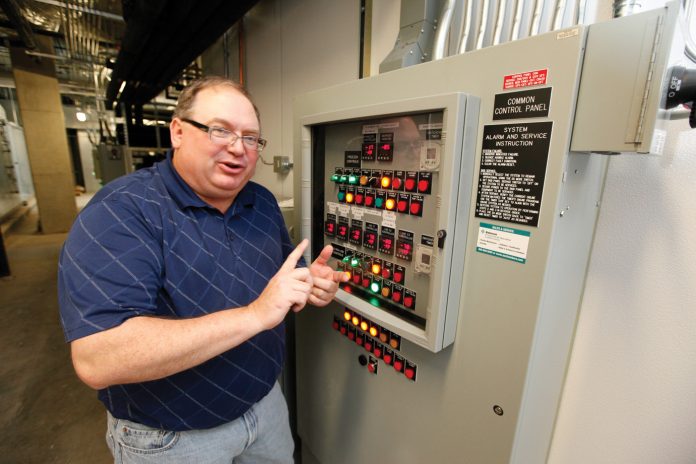
The College of American Pathologists (CAP) has awarded accreditation to the biorepository at the Oklahoma Medical Research Foundation. OMRF’s biorepository is one of fewer than 50 such facilities to receive this distinction.
OMRF’s biorepository houses more than 1 million biological samples gathered from research subjects over the past three decades. The facility has 2,500 cubic feet of minus-80 Celsius (minus 112 degrees Fahrenheit) and 7,000 cubic feet of minus 20 Celsius (minus 4 degrees Fahrenheit), making it one of the largest of its kind in the U.S. OMRF collects and stores samples from patients suffering with conditions including lupus, rheumatoid arthritis, fibromyalgia, sarcoidosis and multiple sclerosis, among others.
“Patient and control samples are the critical foundation for all of our clinical research. The OMRF Biorepository serves as the sample processing, management and storage resource for many clinical studies, as well as for NIH and industry sponsored trials,” said OMRF Arthritis and Clinical Immunology Program Chair Judith James, M.D., Ph.D. “We want to make sure the samples are processed appropriately and are all of the highest possible quality so they are ready to generate important data.”
Joel Guthridge, Ph.D., who serves as the scientific director for the biorepository, said this accreditation serves as a testament to the diligent work OMRF has done to expand and develop the infrastructure of the facility, consolidating the data and samples across multiple research programs.
“This certification shows that we’ve been independently assessed and validated for all of our processes,” said Guthridge, Director of Translational Informatics and Core Resources at OMRF. “It gives assurance to our investigators about the high quality of work we do, the systems we have in place to ensure data reproducibility, and the rigor in our processes. This has become important for any sort of federally funded research, clinical trials and so forth.”
Guthridge said this accreditation also provides peace of mind to the patients who donate samples that are stored in the facility. “It ensures that OMRF uses those samples as they are intended, maintains the integrity of the samples and values patient privacy,” he said.
The U.S. federal government recognizes the CAP Laboratory Accreditation Program, begun in the early 1960s, as equal to or more stringent than the government’s own inspection program.
During the CAP accreditation process, inspectors conduct an onsite inspection and examine the laboratory’s records and quality control of procedures for the preceding two years. CAP inspectors also examine laboratory staff qualifications, equipment, facilities, safety program and record, and overall management.












